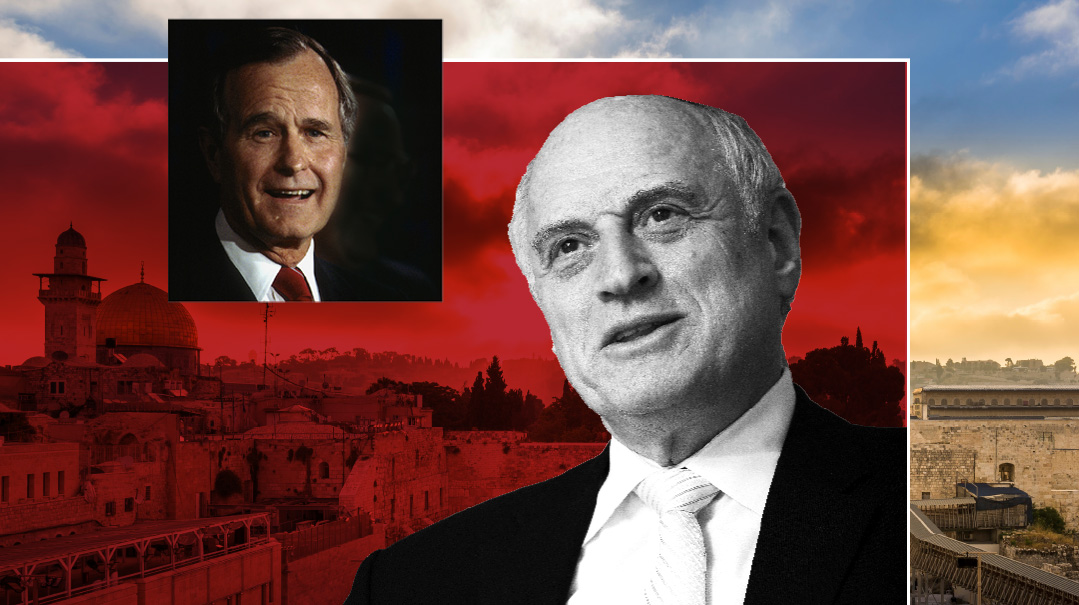Iran’s March to the Bomb

As Iran dashes for the bomb, Israel may be preparing to act
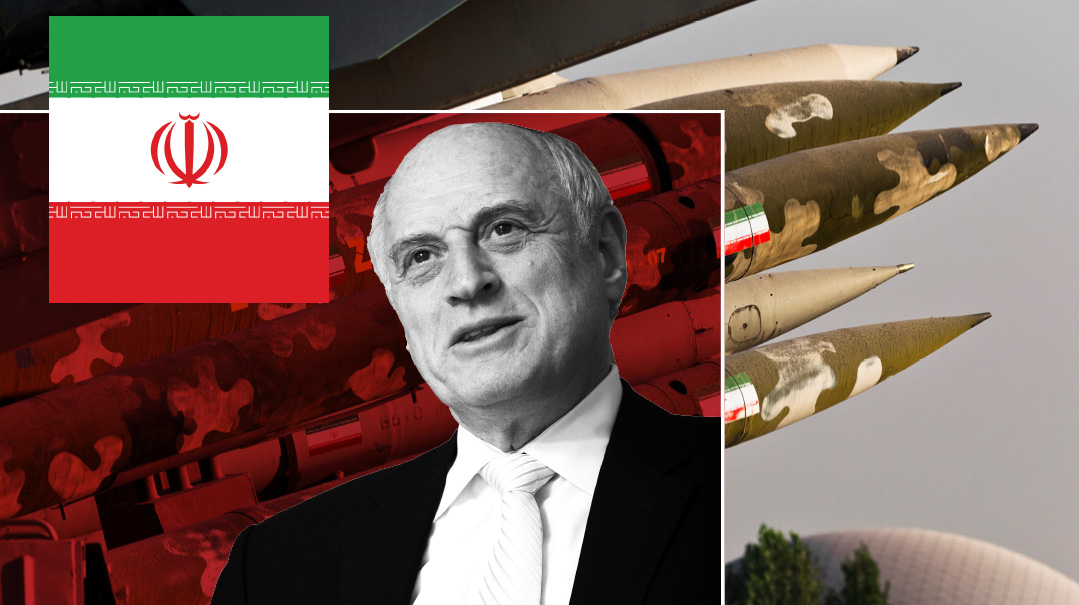
Crisis: 1999 arrest of 13 Iranian Jews
Status: Global pressure led to their release
Lesson: Iranian leaders must face an existential threat to back down from their race to a nuke
With Iran approaching the nuclear threshold of 90 percent uranium enrichment, and the US reportedly in talks for a new deal to stave off that capacity, is Israel — which has fought a decades-long shadow war against the Iranian nuclear quest — on the path to launching a military attack? That’s certainly a plausible scenario as to where we’re headed right now, because Israel has always acted when it felt a knife at its throat — and in this case, the foe has declared its desire and intent to destroy Israel.
The American officials I speak to don’t downplay the threat. They don’t dismiss the fact that Iran has cheated all along, but they also don’t see a new deal as being a major concession to Iran, which it is. It will be perceived as such by the other countries in the region, and they will see in another deal that America is again capitulating to Iranian demands. We don’t yet know what is in the “deal,” or how many more deals could be in the offing. Will it be a mini-JCPOA, a “less for less” deal, a massive payment for temporary gestures, etc.? It is anybody’s guess.
This could be such a dangerous trigger, because countries in the region will say, “Why should we be fighting Iran if the United States, and certainly Europe, negotiate with the Iranians despite their working with Russia to supply weapons to the war in Ukraine?” Despite its massive human rights violations, Iran ludicrously gets elected to positions in the UN, even the Disarmament Committee. And there will be cause for despair, knowing they have violated past agreements.
The shifting sands in the Middle East — including the new ties between the Saudis and China — are born of disappointment with US policy. They were particularly concerned by the lack of American response to Iranian attacks on shipping in the Straits of Hormuz, where large quantities of the world’s oils supply flow. In the Middle East, perceptions count — and the impression is that the US is withdrawing, or at least diminishing its presence and attention in the region.
And no new nuclear deal will work unless it’s accompanied by a credible threat of US military action, which seems to be lacking at the moment.
In parallel, Israel has learned the lesson that it has to rely on its own capacity to act, and in fact, other countries are relying on Israel’s capacity and Israel’s willingness to do the dirty work.
None of them, including Saudi Arabia, which has just restored diplomatic links with Tehran, trust the Iranians, who are building a regional and global network of terrorism. The Europeans know that Iran is working inside their countries, assassinating people, working against the governments, radicalizing populations, manipulating everything they can.
The current dynamic leads to the possibility of an Israeli attack, and the window for action is set by the need to limit civilian casualties, which — as we saw when Israel attacked the Osirak plant in Iraq in 1981, and the Syrian reactor in 2007 — is before these plants go “hot.”
For Israel, this requires an immense amount of planning, because a strike on Iran will no doubt activate and trigger responses from its allies surrounding Israel. And today that includes Iraq, Syria, Lebanon, Gaza, and the Houthis in Yemen.
Regarding armaments such as bunker-busting bombs needed to destroy underground facilities, although Israel doesn’t have the capacities that American has, one should never sell Israel short. They’ve been working on this, and they have capacities that are not public, and I think that if forced to do it, Israel will go it alone to prevent an imminent attack.
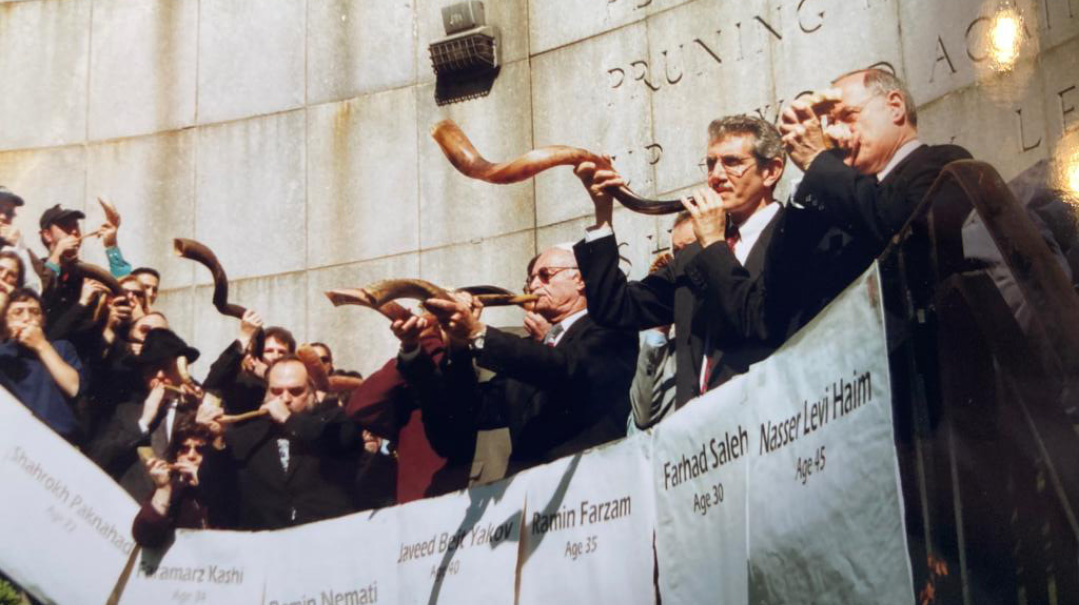
PRESSURE CAMPAIGN A pre-Rosh Hashanah demonstration for the imprisoned Jews, outside the United Nations in Manhattan
The Iran 13
I started preaching that Iran was a danger in the mid-’80s. I went to see President George H. W. Bush about it, and raised the issue with President Clinton in seven or eight meetings. I continued to press the issue with President George W. Bush, because it was such an obvious danger that was growing.
We have learned that dictators tell the truth. You have to take their words seriously. When they threaten to destroy your country, believe them that that is their goal, especially when they are driven by an extremist ideology.
An early encounter with the regime’s threats was when I met Habib Elghanian, who was the head of the Iranian Jewish community, and he was in Israel right after the revolution.
In a meeting with Prime Minister Begin, he urged Elghanian to stay in Israel. He replied that he had an obligation to his community, and when he returned, he was arrested and killed, which led even more members of the community to emigrate. Every year the regime killed one or two Jews to remind them of their place, but we had no means of knowing about these executions until after they were carried out. Everything was done in secret.
Then, in 1999, the regime arrested 13 Jews on charges of spying for Israel using sophisticated communications equipment. Most of them were teachers or store clerks and people in similar trades. In fact, the wife of one of the accused told reporters as the prisoners were being marched into court, “Show him your cell phone. See if he knows how to use it.” These were not people who were spies, let alone using sophisticated communications equipment.
Because Israel couldn’t take on the campaign, we took leadership on it and helped organize the global campaign for the Iran 13. That included almost weekly demonstrations in New York and elsewhere, involving the community but with particular visibility of non-Jews, to emphasize the broad support for this issue.
As I said, the Iranians executed one or two people each year, and we learned that three of the 13 were marked for death sentences and ten for long prison terms to be carried out after the sham secret trials.
In the course of the activities, we mobilized 66 governments, including kings and prime ministers of Muslim and Arab governments. Some of them wrote or issued protests to the government of Iran that were so remarkable. They threatened to cut off diplomatic relations and economic ties with Iran if anything happened to the 13. As I read some of the letters, I was deeply moved.
We conveyed to the world that this was a purely humanitarian issue involving innocent people, nothing to do with politics or the relationship with Israel. While organizing the protest movement, we began discreet contacts with Iranians or others who had contacts with Iran’s leaders.
In one of the private meetings, I told them that if they let the 13 go, it would be clear that it was their court’s decision, which was a way of allowing them to save face, because in Iran, pride and dignity are very important. I asked the leaders of other communities, and they agreed to the strategy.
At one point, as the trial went on, the Iranians disrupted the communications that enabled us to get information from Iran to Switzerland, England, and ultimately New York. Without it, we couldn’t find out much of what was happening.
Rabbi Herman Neuberger z”l of Ner Israel in Baltimore, who was very involved in this issue and brought over many Iranian boys to learn in their yeshivah, was really an important party in all of these efforts, though not in the protests.
He said to me, “You know, there’s an American Jewish reporter who has very good entree into Iran. You should reach out to him.”
So, I tracked him down. He lived in Paris, and I started to tell him over the phone about our problems, and he said, “No, don’t talk now — I’m coming to New York next week, and I’ll come and see you.”
A few days later, he came up to my office, and we ended up spending three intense hours together. He was Jewish, and I could see that the captives’ plight moved him.
He also had a deep understanding of conditions in Iran, and he had contacts there that he agreed to use to help us restore the communications line. Indeed, shortly thereafter, he went to Iran and restored the communications lines, then went on from there to Pakistan, where he was abducted and executed by the Taliban, proudly proclaiming that he was a Jew, his parents were Jewish, and a street in Israel is named for his grandfather.
His name was Daniel Pearl.
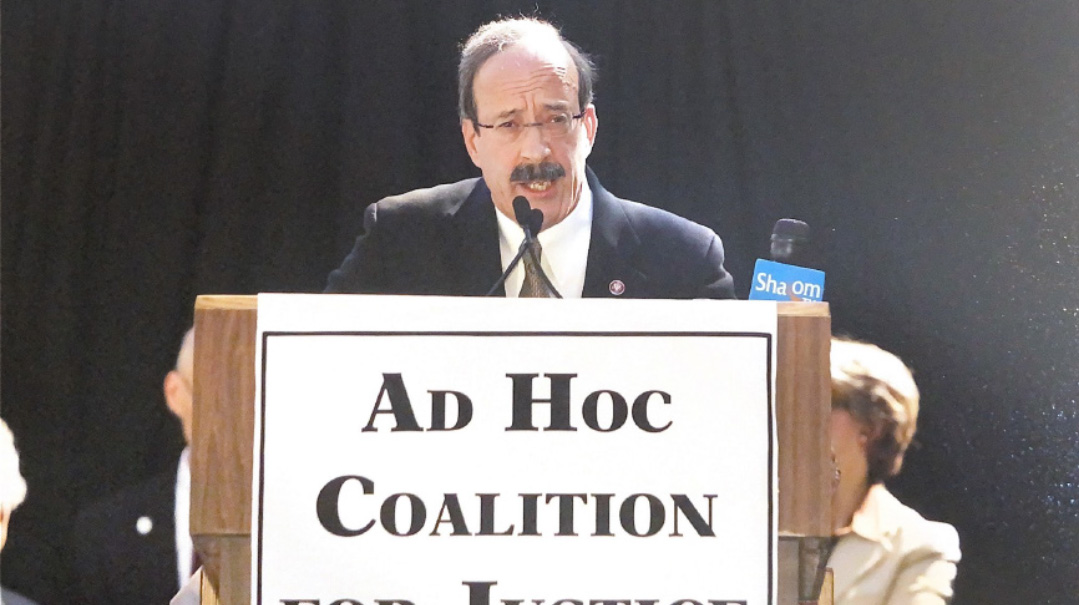
Rep. Eliot Engel speaks on behalf of the Iran 13
Price Calculation
The pressure campaign and discreet back channel worked, and the Iran 13 were allowed to walk free and leave, thank G-d. Most are outside Iran today, and I met a couple of them when they reached the US.
Since then, the Iranian Jewish community has largely been safe, and part of what changed the dynamic, I think, is that the authorities saw that when they touch the Jews, much of the world comes down on you. When they saw formidable opposition, they backed off, because it wasn’t worth the price.
Another thing that I saw is that they’re very pragmatic. They’re market-traders, and I was criticized for describing them as such in the past, but that’s how they describe themselves — as bazaaris. And they are the best at it.
That’s what I told Secretary Kerry when he was leading the Iran nuclear deal negotiations leading up to the deal in 2015. I said, “You know, they will have your pants off and you won’t even know it.”
They really are expert negotiators and shrewd businesspeople. So, to get their attention, you have to get them to understand that it’s a greater benefit for them to come to terms than it is to pursue their current course. Not by concessions and one-sided capitulations. Not by pallets of cash or ignoring violations.
When Israel buzzed Assad’s palace in 2006, it sent the strongest signal to Damascus that the leadership wasn’t safe if they continued to threaten Israel. Similarly, if Iran’s Supreme Leader Ali Khamenei could see that he and his government would be in danger, it would change the calculus for Tehran. They are vulnerable. The economy is in ruins, there is a great deal of dissent, outmigration of talented people, and the public demonstrations, which continue periodically, underscore the danger.
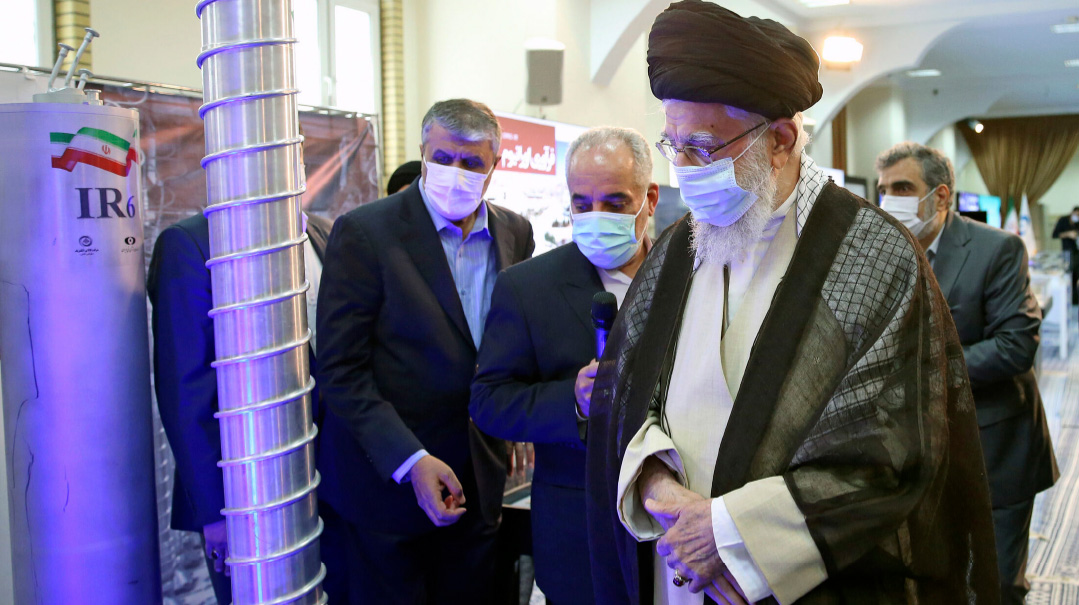
“The window for action is before these plants go 'hot.'” Iran’s Supreme Leader inspecting a nuclear site
Limited Action
It’s doubtful, though, that such a message will come from the West at this point. I think that many members of the Senate and the House do understand the severity of the threat from Iran and want Congressional oversight of any deal. No one wants war or conflict if it can be avoided.
America does need to bolster its capacity in the region, and that of its allies, despite the focus on Taiwan and the South China Sea. We have limited naval resources, and some of our friends are backing off. We have to develop the resources and find the money to do it in order to deter Iran. The only thing that will prevent them completing their march to a bomb is if the Iranians believe that we will act to prevent it.
Back in 2015, Prime Minister Netanyahu was criticized for speaking in front of Congress about the nuclear deal that had been signed by the Obama administration. He had been warning the world about its dangers, and at a time when nobody else was willing to speak up, we welcomed the opportunity to highlight some of the facts.
As Netanyahu told me back then, “Imagine it’s 1938, and you know what Hitler wants to do, and you have the chance of telling Congress about it — would you not take it?”
That’s where we are today, as Iran almost completes its nuclear work; there needs to be much greater seriousness and realization on the part of many people about how critical this moment is for our allies, especially Israel, the West, and in particular the US. Look at Iran’s growing involvement in South America. They are building capacity to fight us from two hours off our southern border. Remember, the US is called the “Great Satan,” and Israel is called the “Little Satan.” Iran’s leaders, not the people, want to destroy both.
(Originally featured in Mishpacha, Issue 967)
Oops! We could not locate your form.

